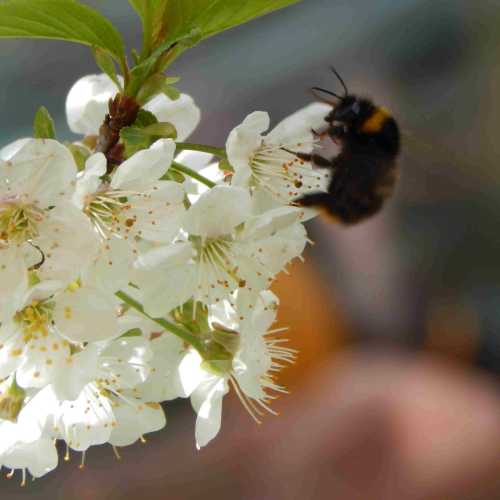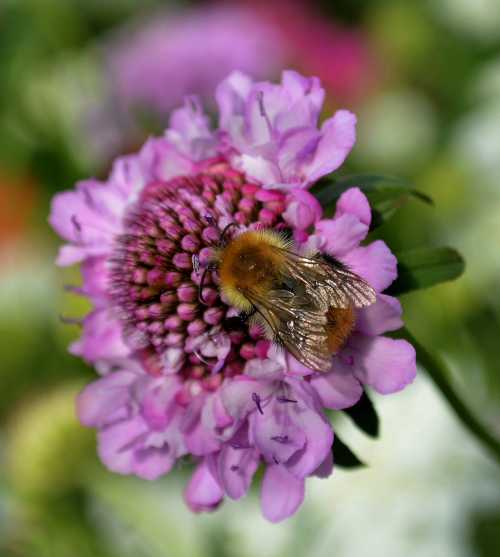Do We Really Need Bees?
Updated: 29th January 2021
The short answer is:
Yes, like other invertebrates, bees are part of the whole interconnected web of life that makes up the ecosystem, with each living organism playing its own part.
Why we need bees
You'll often read about the valuable role bees (and other insects) play in the process of pollination - a commonly quoted statistic is that bees pollinate about a third of the food crops we eat. Whether or not we can accurately measure how much food bees pollinate, I think we can all accept that bees play an important role.
Indeed, I have covered the topic of the importance of bees in depth and from a number of angles on this website.
You can read 10 reasons why we need bees - this page covers the following topics (among others):
- Role in pollination, providing food for humans and wildlife.
- Economic importance of bees (helping to sustain livelihoods).
- Bees provide signals about the health of the wider environment.
- Bees help pollinate trees, which are themselves vital for air quality, providing oxygen, water conservation, climate regulation, soil stability and which support other wildlife species, as well as humans.
- Through pollination, bees help improve the quality of the crops they pollinate, and increase their nutrient value, providing benefits to human health.
- Nature inspires many scientific inventions, and bees play their part in this! For example, scientists have studied the activities of bees and applied what they have learned to engineering projects.
 Bumble bee pollinating a cherry flower.
Bumble bee pollinating a cherry flower.
Does it matter if just some bee species go extinct?
Whilst it is true that some species are now extinct and the impact on humans may appear to be minimal, other parts of the ecosystem may indeed have been negatively affected. For example, some plants may only be pollinated by particular insect species, and demise of the pollinating insect may result in extinctions of plant life. We cannot always know in advance the wider importance and role of any species, and often our knowledge is limited.
If we are tempted to take a relaxed view of species extinction, then perhaps it's worth pausing to consider these questions:
- What kind of environment do we want ourselves and future generations to live in?
- Would we prefer to see a beautiful varied countryside and our gardens rich in flowering plants?
- What do species extinctions tell us about the health of the wider environment?

There are many other questions we could ask ourselves too, that would touch on moral issues of guardianship, rights of species to co-exist, and balance of human 'needs' versus 'wants'. Confronting these questions honestly may be easier than implementing the answers and ideas that arise. However, we can at least play our own part by taking personal action. Raising awareness is a very good thing - taking practical action to create habitat with plants for bees is even better, and we can do that in our own gardens and yards, in school grounds and so on.
More articles about bees
- Do bees have ears? Can bees hear? How do bees pick up sounds? No, bees do not have ears, however, they are able to pick up sounds, so in a sense they can ‘hear’ but not through the use of the ears.
- Do Bees Have Knees? Answer: 'Yes'. Here's an explanation and diagram You've heard of the saying 'the bee's knees', but do bees have knees? The answer is 'YES'. Here is an explanation and diagram showing the location of the knee
- Why Do Bees Have 5 Eyes? A bee has 5 eyes: 2 compound eyes & 3 simple eyes on the top of the head, but what for? Plus things you didn't know about bee vision.
- Why Do Bees Have Hair? Why Are Bees Furry? Here are 4 important reasons, plus some examples of ways in which particular species make use of specially adapted hairs.
If you found this page helpful or interesting, I'd really be grateful if you would share it with others - if not this page, perhaps another, such as Gardening For Bees.
Thank you so much :) .